One of the joys of blogging and photography is the opportunities that are presented. As I have stated earlier, I have been invited to be a part of Cornwallis 1828 recently. Part of that opportunity gets me involved with the sometimes day to day operations. Last week I was talking to Demp Bell the manager of Cornwallis. I was setting up my next visit to photograph some of the flowers that are starting to bloom. He asked me to come and document the Beekeepers managing the hives at Cornwallis.
That leads to today. This morning I arrived early and met Demp and we waited on the Beekeepers. A short time later a couple arrived, and I was introduced to Ralph and Kate Pugh, the owners of Sweet Gum Ridge Apiaries.
After a short introduction they left heading to the beehives, and I followed behind.
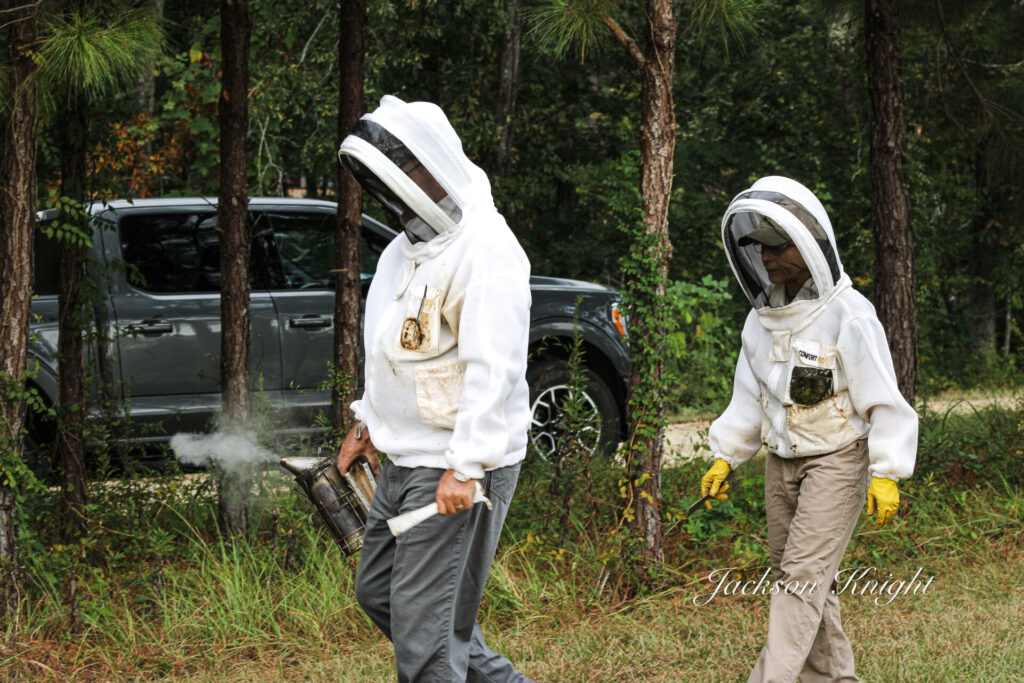
When I got there, they were already getting started. They were suited up in bee suits and had one for me as well. After a short discussion I decided that I would not be able to photograph with a bee suit on so I put my zoom lens on my camera and backed out so that I could photograph and not be in where the bees were swarming.
I had never seen anybody work a beehive before. It was a very interesting thing to watch. It was obvious that these two had done this a time or two or a thousand maybe. I watched as they worked. They described it all to me as they worked.
They separated the different parts of the hive slowly and smoothly. One piece at a time like they could have done it blindfolded. Ralph would explain what he was doing and then Kate would explain what she was doing. It was truly a fascinating experience to watch.
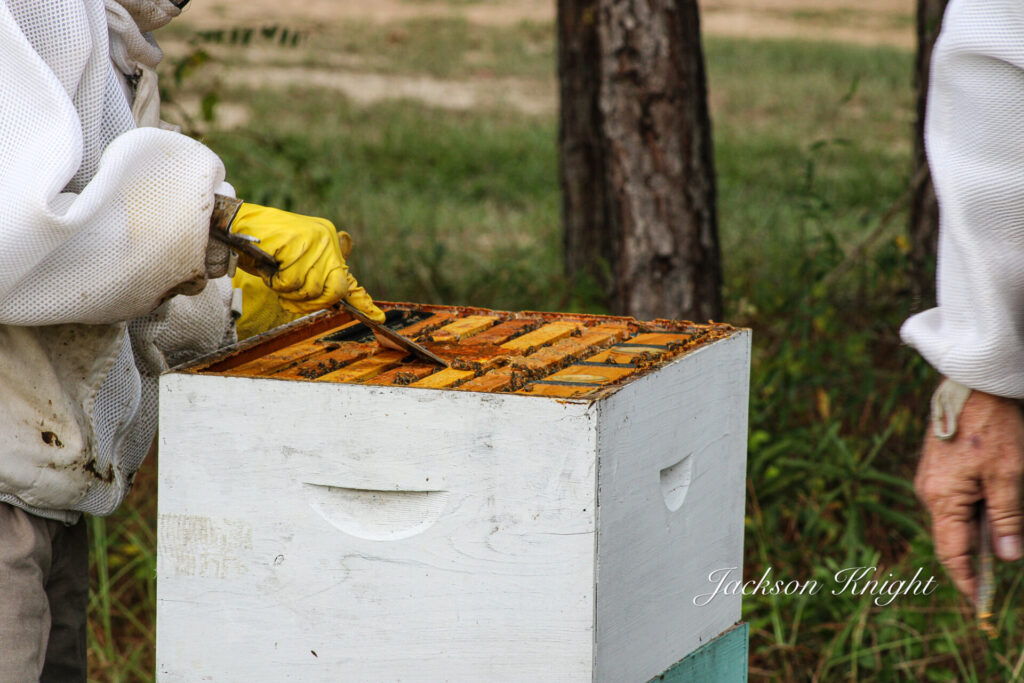
Kate was separating and scraping a yellow substance. Ralph explained that it was called Propolis. He explained that the bees produced it and that they literally sealed the hive with it. He also explained that it was a purifier and it had numerous health benefits for humans as well.
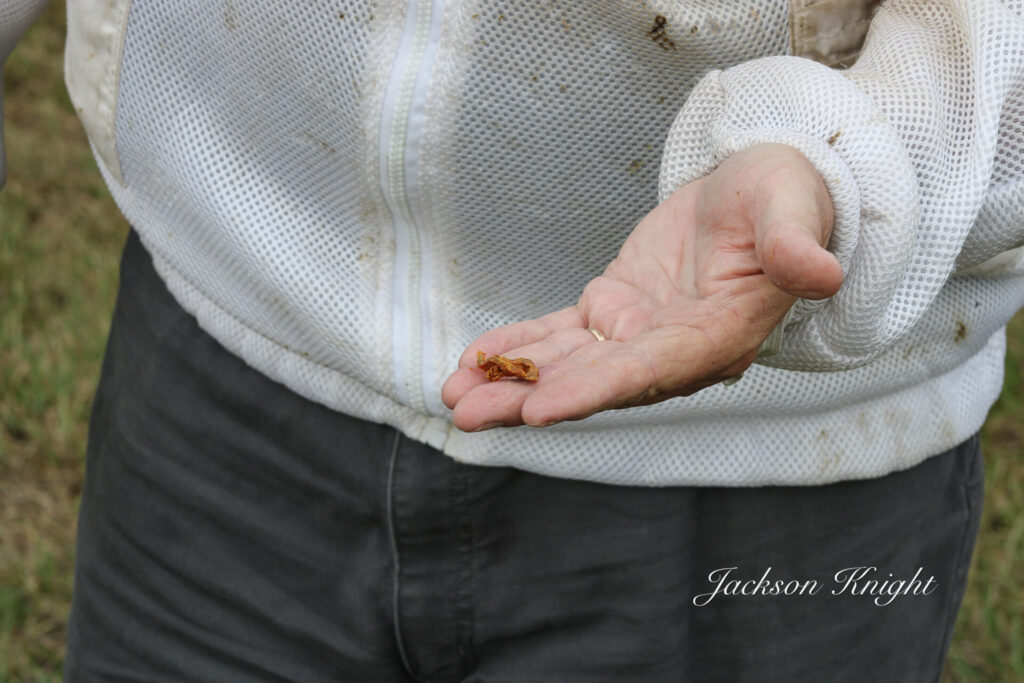
Next, he held up a frame and showed me what he called the Brood on it. It was a large number of young bees that were growing to become replacements for the rest of those that die off in the hive.
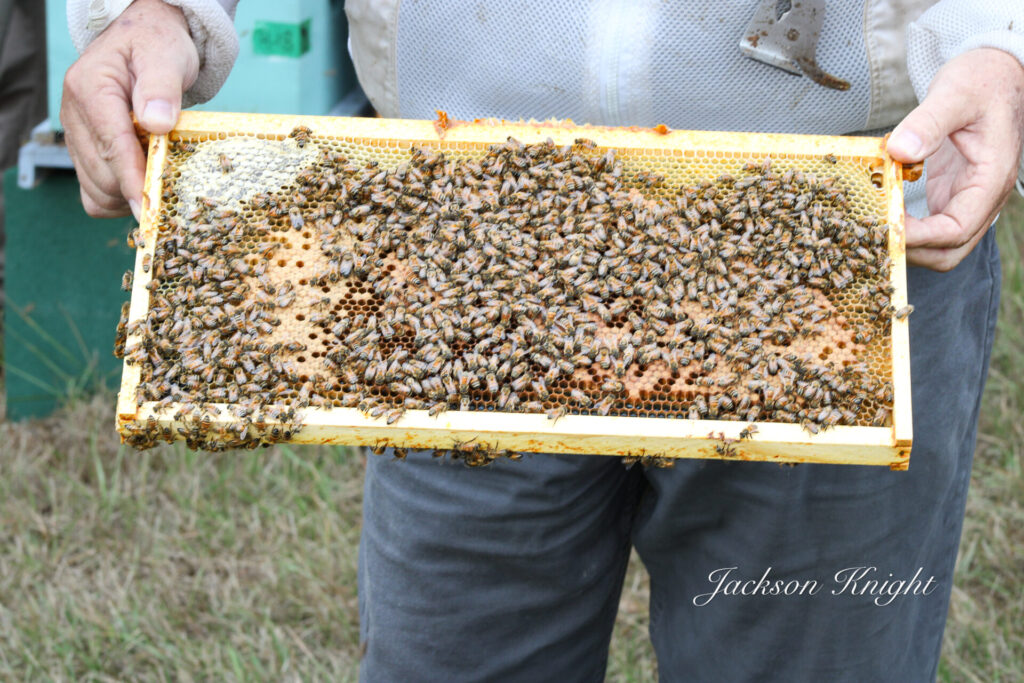
As they were working, they slowly used the smoker and Ralph explained that the smoke pushed the bees back up into the hive and kept them docile.
Another thing I learned was that there was only one queen in the hive. She laid all the eggs. That is her sole purpose is to lay eggs. There is one queen and can be as many as 60 to 80 thousand bees in one hive. That was hard for me to even comprehend.
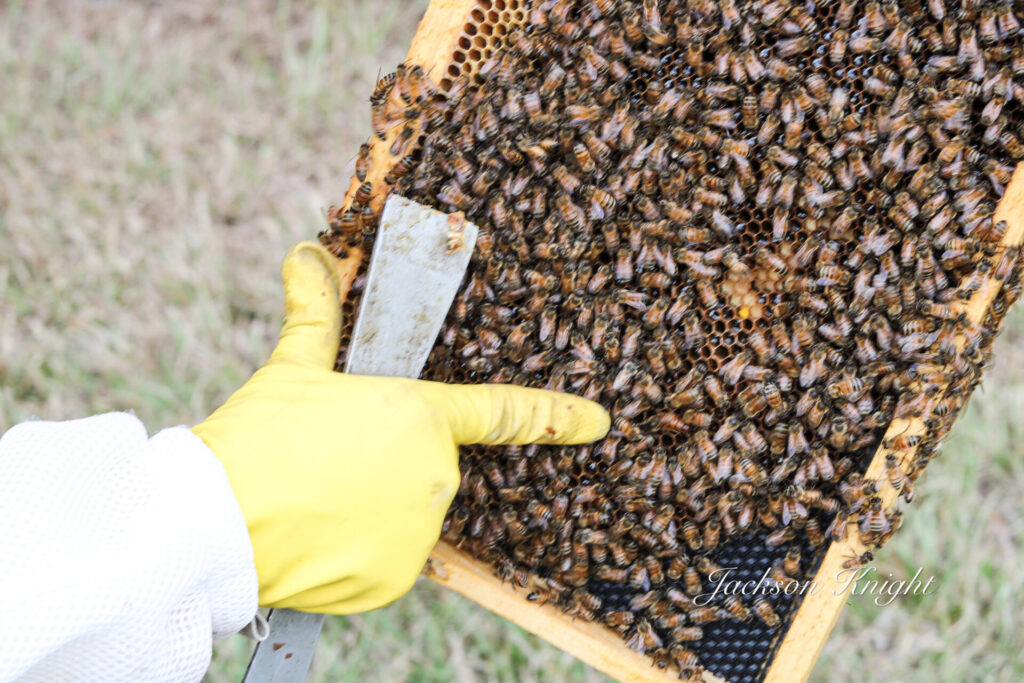
Another interesting thing that they both explained to me was that to procreate a hive that a new queen would be hatched and there would be a swarm and half of the hive would leave with the old queen and half would stay with the new queen.
Another interesting fact is that the honey kind of ebbs and flows with the nectar as different plants bloom.
Most of the honey we have in our part of the world that is made locally is wildflower honey. Two popular flowers are Clover and Goldenrod. Kate explained that Clover Honey is normally light in color, while Golden Rod Honey is normally darker in color. Ralph went on to say that the hives will have a different smell as well with different kinds of nectar. He laughed and said that Golden Rod Honey would have the hives smelling almost like dirty socks.
After they finished we visited a few more minutes and then we all went on our way.
This was as I said more than once a fascinating experience.
Their website is https://www.buysweetgumridgehoney.com. You can find them on Facebook at https://www.facebook.com/sweetgumridgehoneybees. Check them out.
They know their bees and honey. A quick glance at their Facebook page shows that they have some award-winning honey.
As with so many interesting people and places I get to go, and interesting things I get to do as I travel Alabama this was a wonderful day and, it was a pleasure to meet this couple.
I can only imagine what my next adventure holds but I don’t think it will be long before I find out. Until then have a great day.
Jackson
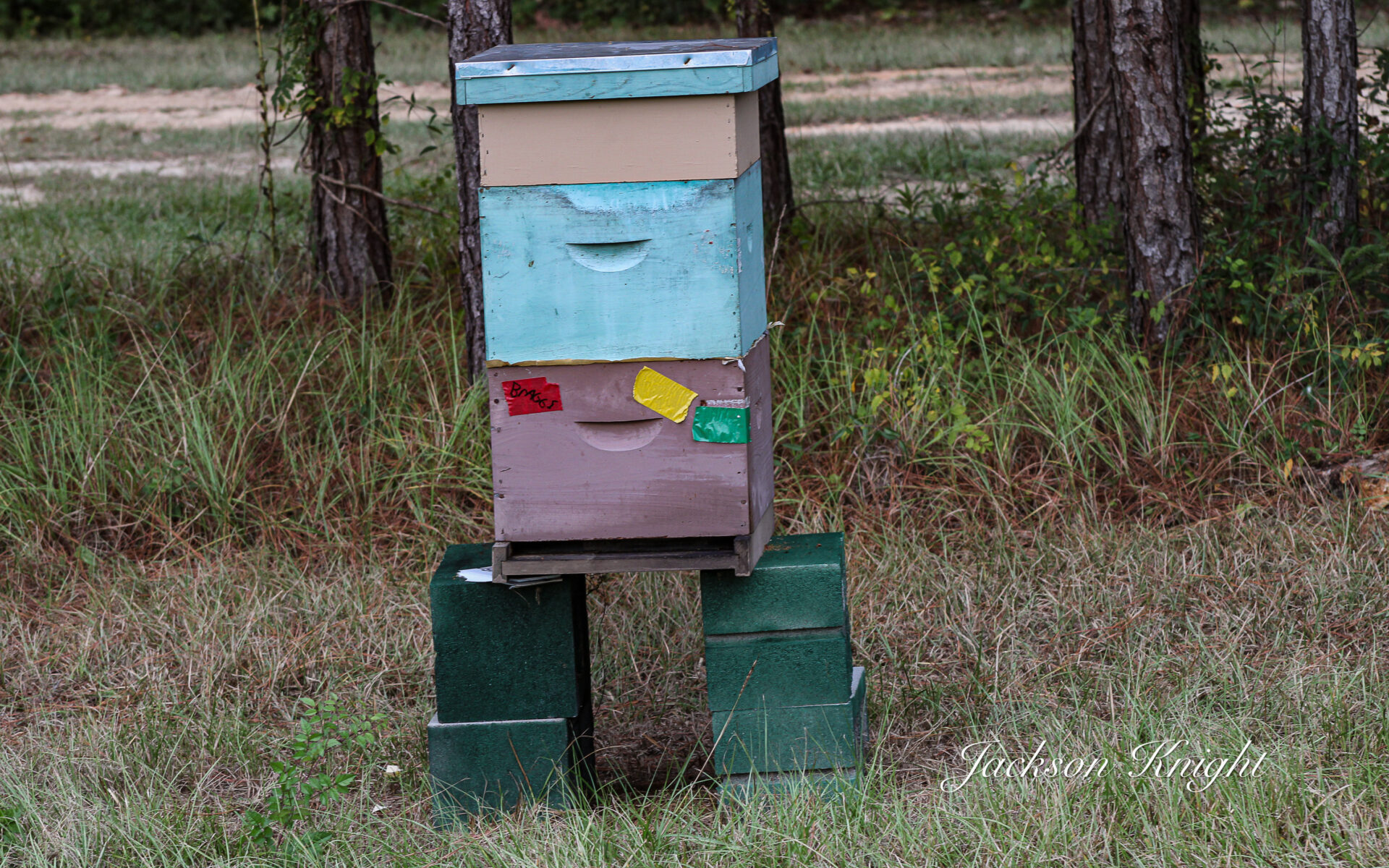
Thanks…this is a very informative blog.